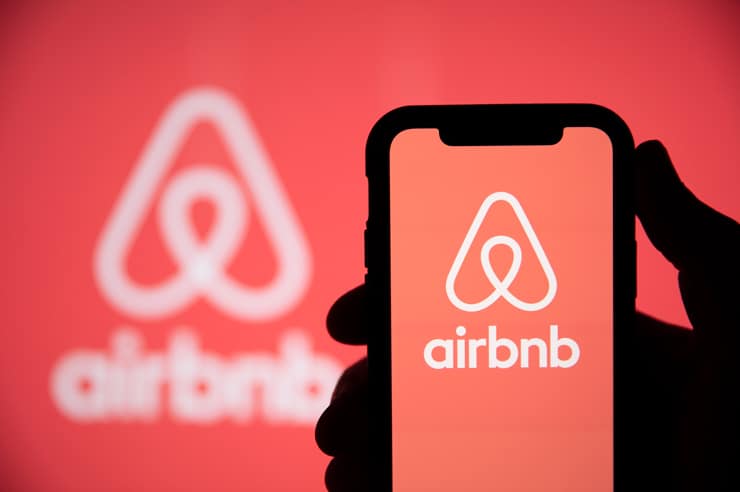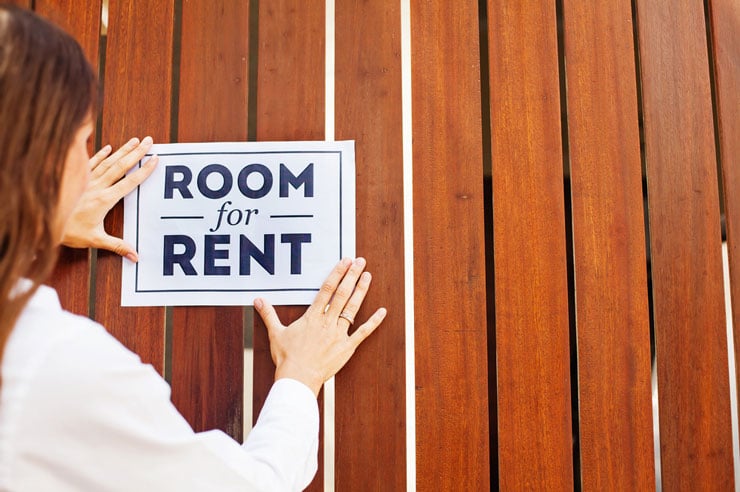Tax on Airbnb Income in the UK – How Does it Work?
29/01/2022 - 8 minutes readTax on Airbnb Income is one of the most frequently asked questions during this tax return season.
The Airbnb market in the UK is booming.
If you’re looking to tap into this market or currently earn an income through Airbnb or a rental property, it’s important that you understand the tax implications.

Paying Tax on Airbnb Income
Landlords need to realise that HMRC will know about their lettings through Airbnb, so full disclosure of all their taxable property income is essential, including for all prior years.
You will need to submit a tax return if you are earning rental income & pay the corresponding tax on Airbnb income – the deadline for filing online is typically 31 January each year.
Airbnb has shared data with HMRC on the earnings of hosts for its platform covering 2017/18 and 2018/19 and HMRC is expected to address any issues over hosts’ payment of tax in 2021/2022. We cover this in a separate article here.
Where the let property is located overseas, the worldwide disclosure facility should be used.
Renting a Room Through Airbnb
You may be eligible for a separate tax-free allowance from your main income if you rent just a room through Airbnb. You will be eligible for rent a room tax relief if you rent a room from a property that is your main residence.
If this is the case, you don’t have to pay tax on the first £7,500 you earn from this rental every tax year. If you’re letting jointly (for example, with a partner or friend), then it is £3,750 for each of you. If your rents are more than this then you have a choice to deduct either the allowance or your real costs to work out the taxable profit.
What is the Rent-a-room Scheme & How Does it Work?
The rent-a-room scheme provides two ways to work out the tax on Airbnb income when receipts are above the exemption limit of £7,500 (or £3,750 if someone else also got income from the same property in the same period). The customer can choose which of the following two methods is best for them:
– Method A: paying tax on the profit they make from letting worked out in the normal way for a rental business (that is, rents received less expenses).
– Method B: paying tax on the gross amount of their receipts (including receipts for any related services they provide) less the £7,500 (or £3,750) exemption limit.

Method A for calculating the tax on Airbnb Income
This is the default method unless an election is made within the relevant time limits (see PIM4050). Profits from the letting are worked out in the normal way set out in PIM1090 (where cash basis is applicable) and PIM1104 (where generally accepted accounting practice is applicable).
Example where method A is preferential to the customer for calculating tax on Airbnb Income
Edward lets out a room in his own home for rent of £200 a week plus contributions to the heating and lighting. His total letting receipts for the year from letting the room are £10,400 rent plus £200 for light and heating = £10,600. He has expenses of £9,000 so his profit is £1,600. The excess of his gross receipts over £7,500 is £3,100 (£10,600 less £7,500).
- – Edward pays tax on his actual profit of £1,600 if he uses method A for calculating the tax on Airbnb Income.
- – Edward pays tax on a profit of £3,100 if he uses method B for calculating the tax on Airbnb Income.
In Edward’s case, method A is better. Therefore he either does not elect for method B or, if he has already done so, he tells HMRC that he no longer wants it to apply. The profit of £1,600 is included in Edward’s overall business computation if he has other rental business income from lettings outside his home. The profit of £1,600 will be the only rental business profit if Edward has no other letting income.
Method B for calculating the tax on Airbnb Income
For method B to apply an election must be made to HMRC within the relevant time limits (see PIM4050).
Once a customer has elected for method B it continues to apply in the future until they tell their tax office they want method A. The customer must tell HMRC within the time limit if they decide they no longer want method B to apply. They may want to do this where the taxable profit is less under method A or where expenses are more than the rents (so there is a loss).
Profits under method B are calculated as the excess of their gross receipts less the £7,500 (or £3,750) exemption limit.
Example where method B is preferential to the customer for calculating the tax on Airbnb Income
Georgia lets out a room in her own home for £200 a week. Nobody else lets a room in the house. Her gross receipts for the year are £10,400. She isn’t exempt from tax because her gross receipts exceed the exemption limit of £7,500. She has expenses of £1,000 so her profit is £9,400. The excess of her receipts over £7,500 is £2,900 (£10,400 less £7,500).
- – Using method A, she pays tax on her actual profit of £9,400.
- – Using method B, she pays tax on a profit of £2,900
In Georgia’s case, method B is better and she elects for it for calculating the tax on Airbnb Income. The profit of £2,900 is included in Georgia’s overall business computation if she has other rental business income from lettings outside her home. The profit of £2,900 will be the only rental business profit if Georgia has no other letting income.
How can MCL Accountants help?
Contact MCL Accountants on 01702 593 029 if you want to know more about Tax on Airbnb income or if you need any assistance with the preparation and submission of your business accounts or self-assessment tax returns to HMRC.
Tags: Airbnb
0 Comments